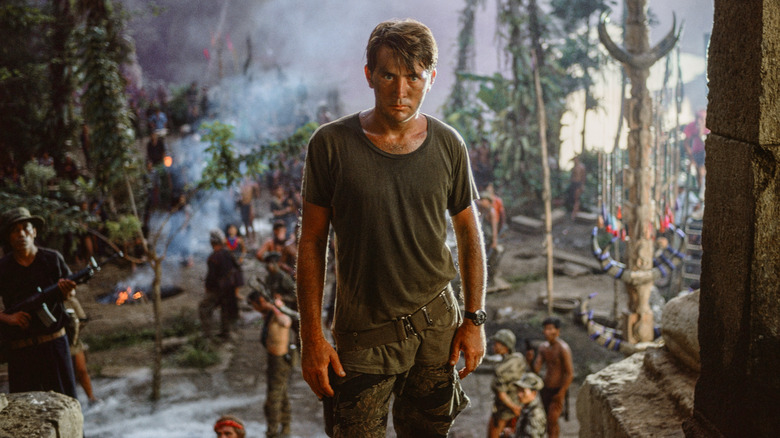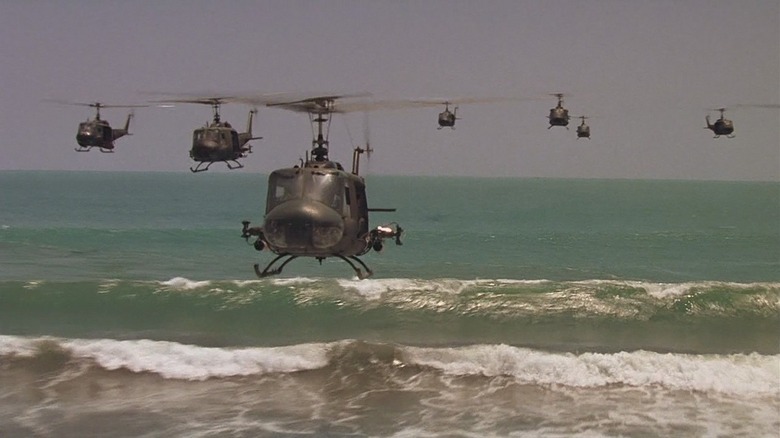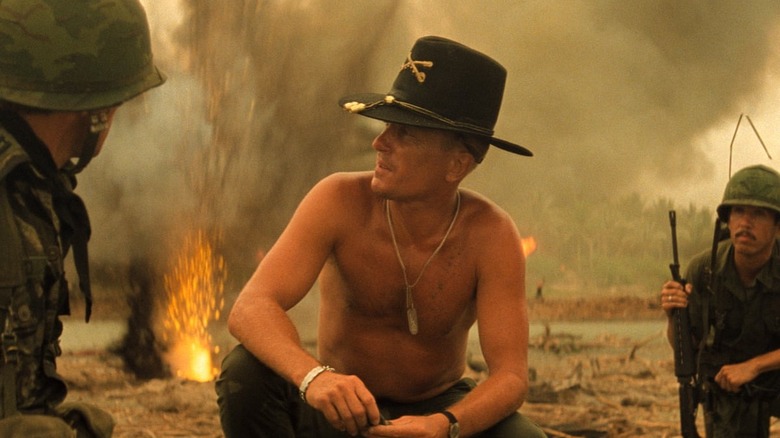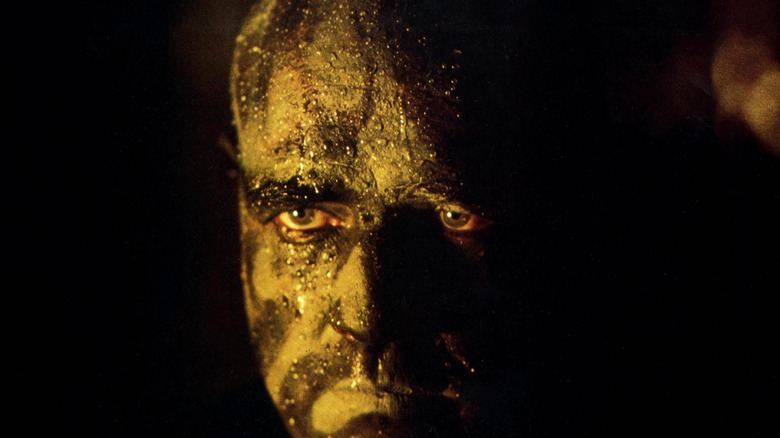Apocalypse Now Ending Explained: The Horror, The Horror
The 1970s was an exceptional decade for American cinema, with directors of New Hollywood taking advantage of unprecedented artistic freedom as the old studio system declined. Attitudes towards sex, violence, and adult themes loosened up, and the likes of Scorsese, Altman, Bogdanovich, Polanski and their contemporaries flourished creatively, making some of the greatest films of the era.
Eventually that freedom would become too much of a good thing. By the end of the decade, some notorious film projects became so bloated and overly-ambitious that they sank the whole movement.
While not as disastrous as Michael Cimino's epic failure "Heaven's Gate" — the movie widely regarded as the one that put the final nail in the coffin of the American New Wave – "Apocalypse Now" showed many similar signs of a director's creativity and ego going unchecked. Francis Ford Coppola, the Oscar-winning director who earned his wings under thrifty cult producer Roger Corman, took auteurship to outlandish levels of excess with his hellish reverie on Joseph Conrad's "Heart of Darkness."
The production of "Apocalypse Now" has become the stuff of moviemaking legend, crazy enough to warrant its own feature-length documentary, "Hearts of Darkness: A Filmmaker's Apocalypse." The troubled shoot in the Philippines included a typhoon that wrecked an entire set, lead actor Martin Sheen suffering a heart attack, real corpses used as props in the finale, and an improvised ending thanks to the enigma that was Marlon Brando.
Working with screenwriter John Milius, Coppola's grand design was to take the audience "through an unprecedented experience of war and have them react as much as those who had gone through the war." Now regarded as perhaps the ultimate "war is hell" movie, there is little doubt that he succeeded. But what of its literary source, and that savage, haunting ending?
So What is "Apocalypse Now" About, Exactly?
Burnt-out special ops guy Captain Willard (Martin Sheen) is going insane in a Saigon hotel room before he gets offered a very special mission. He is tasked with traveling upriver into neighbouring Cambodia to infiltrate the camp of highly decorated Green Beret Colonel Kurtz (Marlon Brando), who is operating brutally beyond the control of the Pentagon. Willard's mission is to terminate Kurtz's command with "extreme prejudice."
To get to his destination, Willard hitches a ride on a U.S. Navy river patrol boat. As he and the crew slowly make their way upriver, they encounter increasingly horrific and hallucinatory episodes, ranging from a helicopter gunship attack on a VC-controlled village to a Playboy Playmates' dance show deep in the jungle.
Gradually, Willard's crew fall one-by-one to the terrors of the jungle before the survivors arrive at Kurtz's corpse-strewn compound. With the pre-arranged air strike on the site canceled, Willard taps deep into his own heart of darkness to dispatch with the tormented, tainted Colonel Kurtz. "The horror...the horror..."
What About the Book That Inspired It?
Drawing from his experiences working for a Belgian trading company plying the Congo River, novelist Joseph Conrad devised a story about Kurtz, a man who takes control of a trading post in the country's interior and sets up a brutal regime, worshipped as a demigod by the local tribes folk. It became a novella called "Heart of Darkness."
The story's protagonist, Marlow, travels through the jungle and upriver to meet Mr Kurtz, who has a mysterious and fearful reputation in the region. Rumors suggest he is gravely ill. When Marlow and his crew arrive in Kurtz's camp, decorated with the severed heads of natives, it confirms the notion that the wayward ivory trader's methods have become unsound.
Conrad used Kurtz as a critique of Belgian dominion in the Congo, where traders and adventurers, given the advantage over the natives by their superior tech, would exploit their power and tip over into brutal and inhumane treatment of the locals. This also reflects the larger picture of European nations pillaging the continent during the Scramble for Africa in the late 19th century.
The title itself, "Heart of Darkness," has a double meaning, referring to the protagonist's journey deep into the so-called "Dark Continent," and also the depths of violence and depravity mankind is capable of through lust and greed.
What Does the Ending of Apocalypse Now Mean?
While the basic storylines are similar, Coppola and Milius also add the extra dimension of war into the mix, drawing parallels between the partition of Africa with US involvement in the Vietnam conflict. Willard is the protagonist but, like Kurtz, he finds himself increasingly unmoored from civilization the further he goes in pursuit of his target. Kurtz's behavior suggests that warfare has a dehumanizing effect on those involved, especially if they are given unchecked power and influence over the "savages" they intend to dominate.
It is obvious from the outset that Willard isn't in the best frame of mind, and by the end he has shed all the norms of Western propriety and has himself "gone native," stalking around Kurtz's compound half-crazed and half-naked. As we have seen Kurtz's worshippers ceremonially slaughter a water buffalo, Willard similarly hacks Kurtz to death. The implication is that Kurtz was a useful beast of burden for the US military until he became a liability, then he had to be sacrificed.
After Kurtz's murder, his followers seem ready to accept Willard as their new ruler. Instead, he just sails away with the last remaining survivor of his crew. The ending is ambiguous — has Willard escaped the cycle, knowing that if he takes Kurtz's place, another assassin will be sent for him? Or, freed from the last vestiges of civilized behavior, is he now heading further off-map to start his own fiefdom? He could just be heading home, but I don't think so ... there is no home for Willard any more.
While other films have depicted armed conflict more accurately and viscerally, none have come quite as close to "Apocalypse Now" in capturing the psychological impact of warfare. The horror, indeed.



